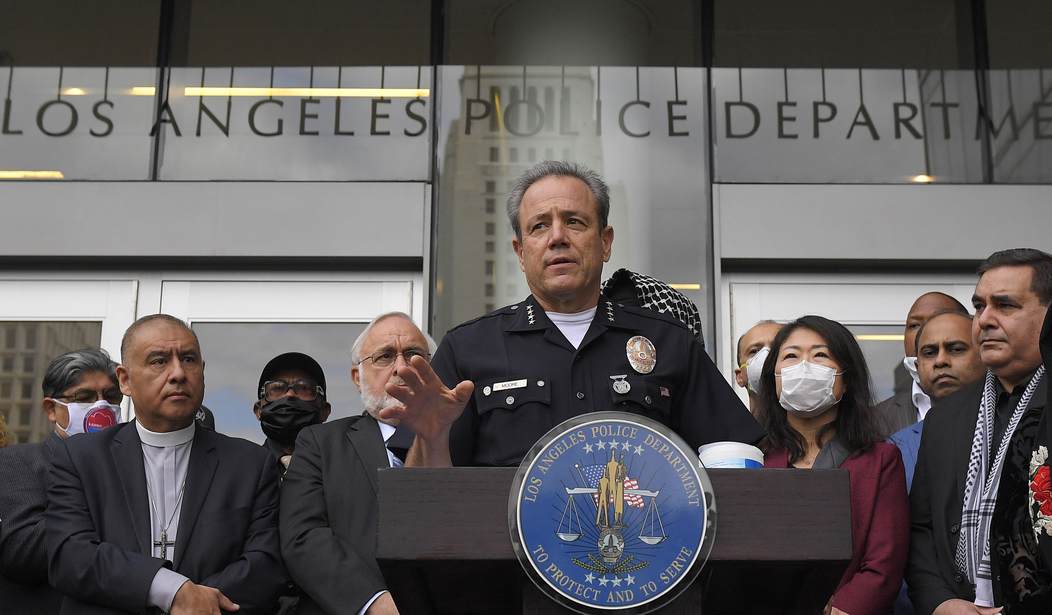There may be yet another change coming to the policies and actions of the Los Angeles Police Department this year and it would once again place more barriers between the cops and possible evidence needed to solve major crimes. The civilian Police Commission heard a proposal on Tuesday that would forbid the practice of what are called “pretextual stops” of motorists or pedestrians except in very specific circumstances. Representatives of the union representing the majority of police officers in Los Angeles objected to the policy change, but that may not deter the civilian board from mandating the change anyway, despite the rising crime rates that the cops are already dealing with.
The Los Angeles Police Department is considering limiting “pretextual stops” of motorists and pedestrians by officers investigating serious crime, arguing they aren’t effective and have undermined public trust in the police — particularly among Black and Latino residents who have been disproportionately targeted in the past.
Such stops involve officers citing minor traffic or code violations as a “pretext” for stopping motorists, bicyclists or pedestrians who they suspect may be involved in more serious crime. They have been used by the LAPD for decades, especially in South L.A. and other areas where gun violence is high.
The proposed policy, which went before the civilian Police Commission on Tuesday over the objections of the union that represents rank-and-file officers, would bar such stops from being conducted “unless officers are acting upon articulable information” about a serious crime.
In case you find yourself wondering what a “pretextual stop” is, you’re probably not alone. These are situations where police officers see someone driving or walking who appears suspicious or may be associated with a more serious crime. They then pull over or approach the person because of some more minor infraction that was witnessed to determine if the encounter might lead to additional evidence usable in investigating the more serious crime. One of the most common success stories (though arguably also one of the most dangerous) is when a traffic stop leads to the discovery of illegal weapons and/or drugs in the vehicle.
Under the proposed policy, stops described as falling into this category would only be allowed if the officer has “articulable reasonable suspicion” of evidence linking the suspect to a more serious crime. That’s a rather vague way to describe it and doesn’t strike me as the sort of directive that can be easily defined during an investigation.
The complaints being raised over pretextual stops are the same ones we’ve heard in so many other stories of supposed police reform measures. Critics claim that such stops involve disproportionately large numbers of Black and Hispanic motorists and pedestrians, implying that the police have racist motivations. They also say that such stops can “subject motorists and pedestrians to inconvenience, confusion, and anxiety, and strain relationships between law enforcement and the community.”
The entire concept of what are now being called “pretextual stops” is rather absurd. It’s already against the rules to simply pull someone over for no reason at all to go on a fishing expedition. If the person has committed a relatively minor traffic infraction it is always optional for a patrol officer to either pull them over or ignore it, depending on how busy they are at the time. The same applies to pedestrians who might appear intoxicated or act erratically. If the officer observes someone who matches the description of a suspect who is wanted in a criminal investigation they are also entitled to question them and determine their identity.
What this really boils down to is yet another case where activists are not interested in simply ensuring fair enforcement of the law. Too many of them would prefer there to be far less enforcement of the law if such enforcement activities impact anyone who isn’t white. That’s not how the system was designed to work and it doesn’t make law-abiding people any safer. This goes back to the same rule of thumb we’ve discussed here numerous times in the past. If you decrease or eliminate negative consequences from the commission of criminal acts, you get more criminal activity as a result. It’s really as simple as that.








Join the conversation as a VIP Member